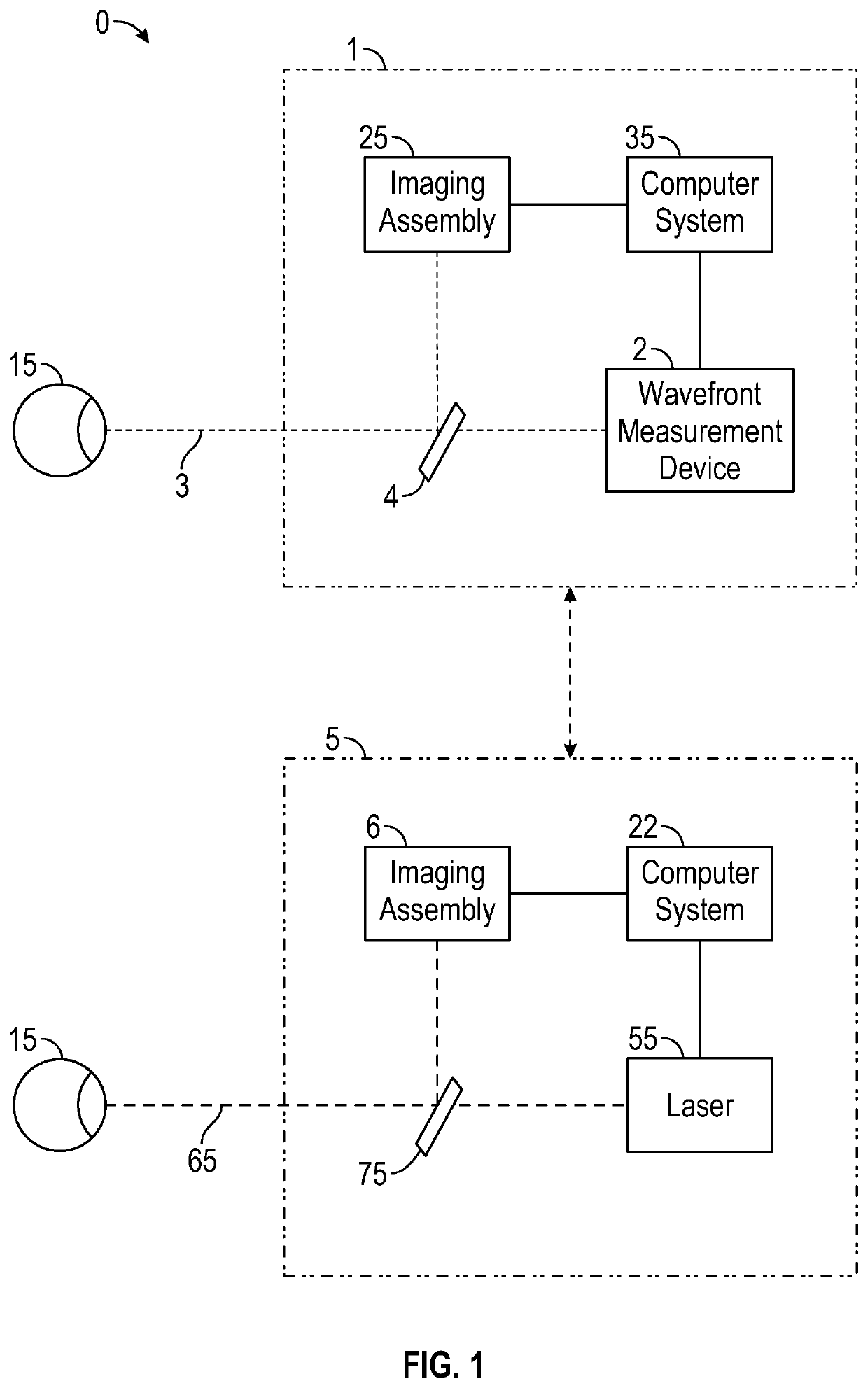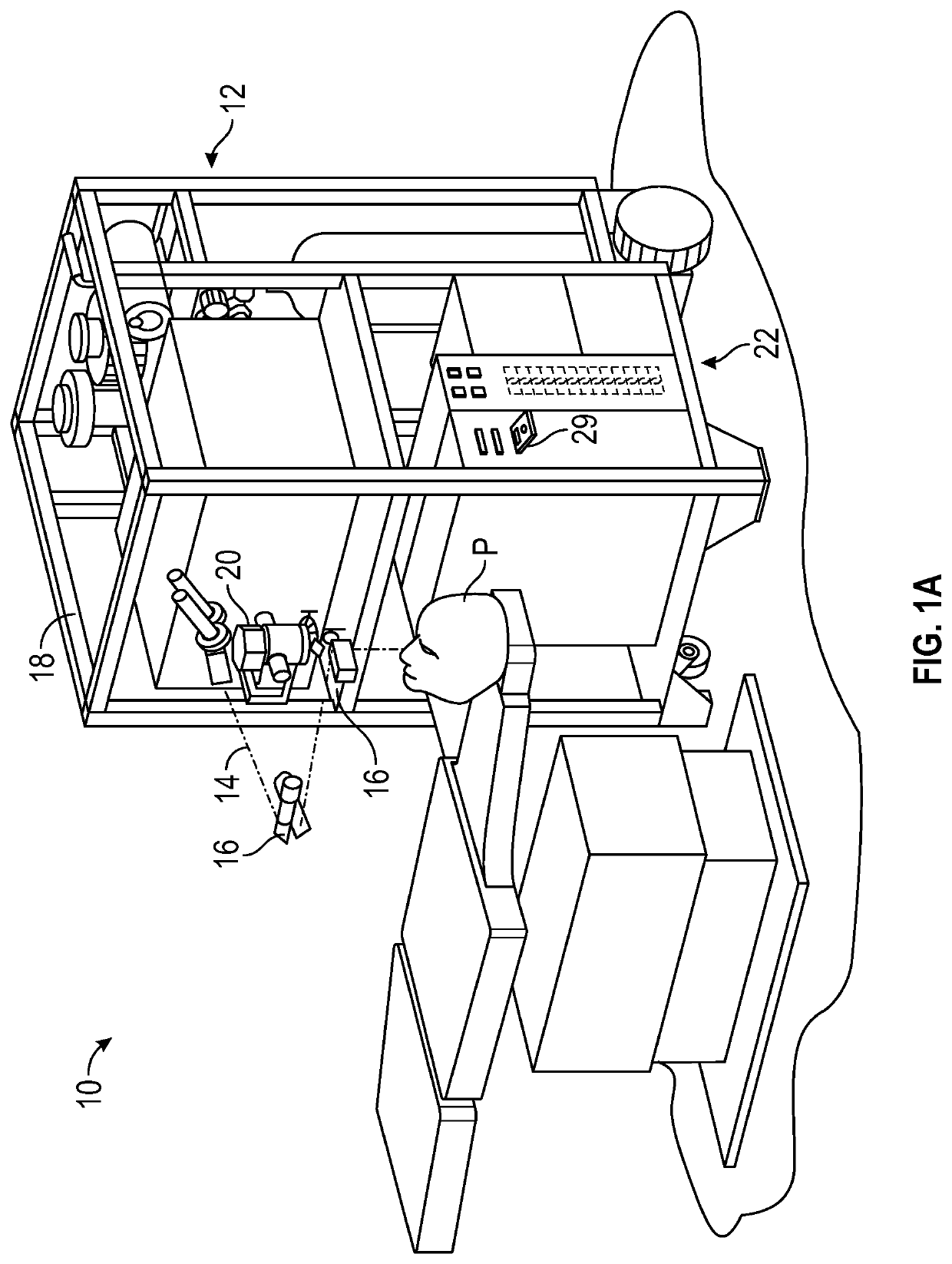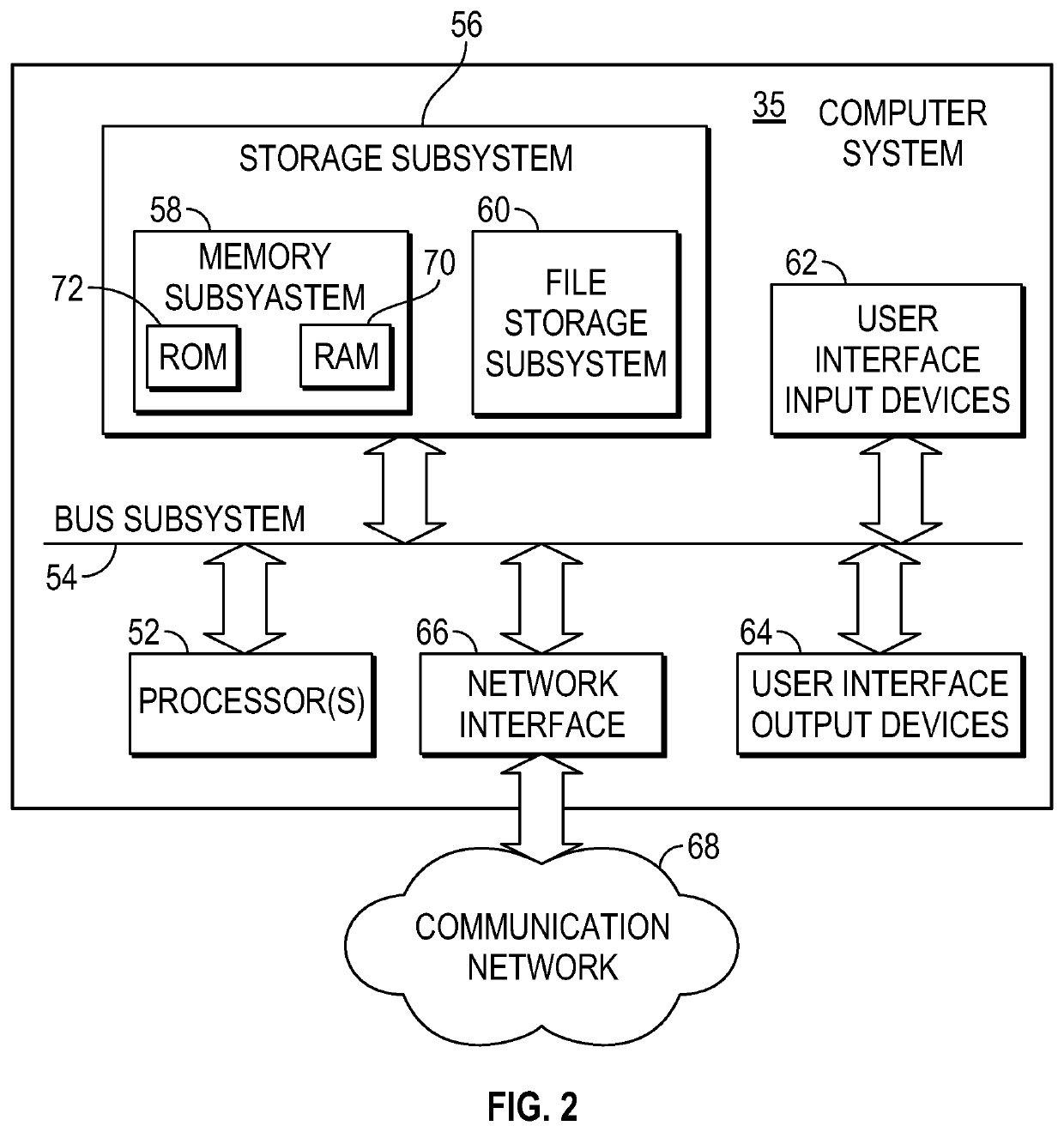Method and system for eye measurements and cataract surgery planning using vector function derived from prior surgeries
a technology of vector function and eye measurement, applied in the field of ophthalmic surgery and measurements, can solve the problems of limiting the benefits of customized corneal ablation to significantly less than the ideal potential outcome, other high-order aberrations of the eye actually increasing, and the overall improvement of the refractive performance of the eye of patients treated using these new techniques has not yet reached the full theoretical potential, so as to increase the overall efficacy of cataract surgery and improve the effect of refractive correction
- Summary
- Abstract
- Description
- Claims
- Application Information
AI Technical Summary
Benefits of technology
Problems solved by technology
Method used
Image
Examples
Embodiment Construction
[0089]The present invention generally provides improved devices, systems, and methods for diagnosing, planning treatments of, and / or treating the refractive structures of an eye of a patient. Exemplary embodiments of the invention make use of recent developments in measurement of refractive properties of the eye, and particularly the tools now available (and / or now being developed) to identify and characterize high-order aberrations of the eye of human patients. Along with the now widely used Hartmann-Shack and other wavefront sensors used to measure aberrations throughout the optical system of the eye, the measurement data and systems employed by embodiments of the invention may include topography, pachymetry, pupilometry, keratometry, refractometry, biometry, and / or the like. The optical tissue treatment modalities employed by the methods and systems described herein will often include ablative laser treatments (typically with an excimer or solid-state laser), but may alternativel...
PUM
 Login to View More
Login to View More Abstract
Description
Claims
Application Information
 Login to View More
Login to View More - R&D
- Intellectual Property
- Life Sciences
- Materials
- Tech Scout
- Unparalleled Data Quality
- Higher Quality Content
- 60% Fewer Hallucinations
Browse by: Latest US Patents, China's latest patents, Technical Efficacy Thesaurus, Application Domain, Technology Topic, Popular Technical Reports.
© 2025 PatSnap. All rights reserved.Legal|Privacy policy|Modern Slavery Act Transparency Statement|Sitemap|About US| Contact US: help@patsnap.com



